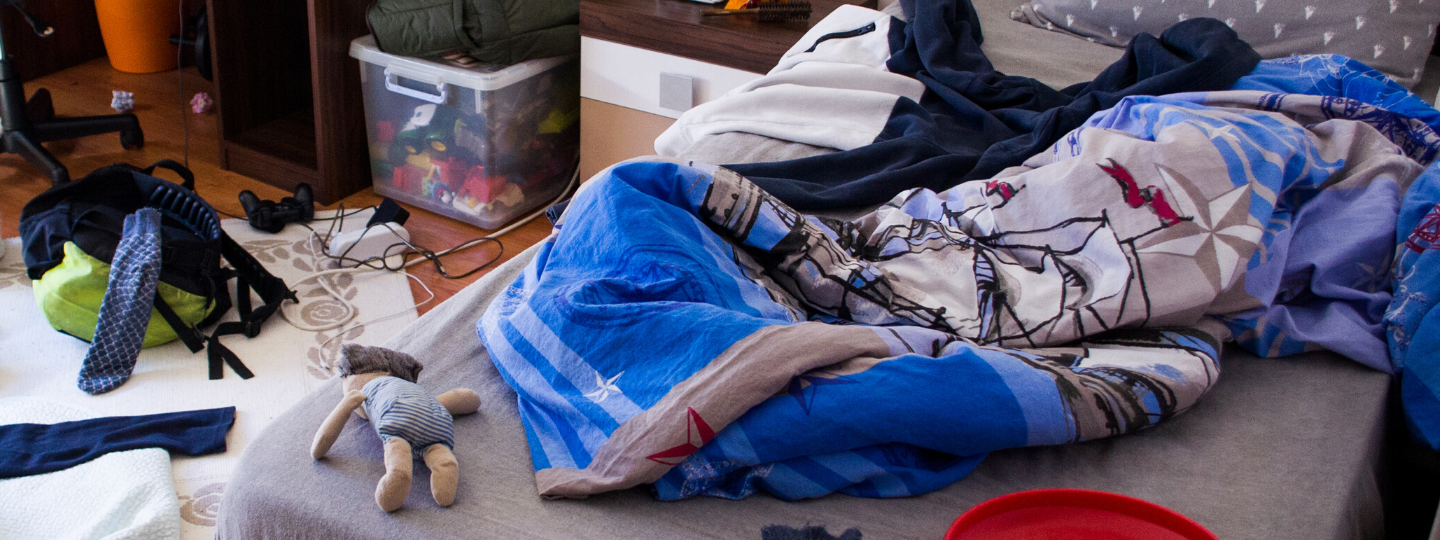Stress and young people
Stress and young people
Wednesday, 30 June 2021
Stress is the body’s way of rising to a challenging situation. Everyone experiences stress at times and it can’t be avoided entirely. Learning to manage stress is what makes all the difference.
Stress can be positive and motivate us to prepare for events. But when we have too much it can seem as if it’s taking over.
Too much stress can make teens or young adults feel panicked or overwhelmed. When this happens, managing it becomes a challenge
In this article, you will find:
What causes young people to over-stress?
Stress affects everybody in a different way. What causes one person to become over-stressed may not have the same effect on someone else.
Some of the things that come up when young people report feelings of stress at Jigsaw include:
- Preparing for exams
- Problems at school or work
- Sexual, physical or emotional abuse
- Relationships
- New responsibilities
- Moving to a new school or location
- Bereavement
- Peer pressure, being bullied
- Unrealistic expectations from themselves, family, friends or culture
- Taking on too many activities
- Having too high expectations
Young people can often manage the stress caused by these situations on their own. But, there are times when several situations come together at once and may cause too much stress. Or, one situation alone could feel overwhelming.
What to look out for
Too much stress can impact negatively on young people’s health, both emotionally and physically. As a parent or guardian, if you notice anger or irritability/moodiness, or your young person is frustrated by things that normally don’t bother them, they may need your support.
Being anxious, crying, sadness or withdrawing from people can all be signs the young person is getting overwhelmed.
Physical signs of stress
Stress can also affect us physically. It’s not unusual for people who are very stressed to report headaches, backache or an inability to sleep. Stomach pains, diarrhoea, indigestion or a loss of appetite are also common physical signs of stress.
Methods of dealing with stress
Being supportive and recognising the signs of stress can help young people manage challenging situations. You can also encourage the following ways to deal with stress.
Tackle the problem
It’s not always clear what’s causing overwhelming stress. Working out what the cause is can make it seem more manageable. Help them figure out the cause by reflecting on recent events, behaviours or thoughts, and encourage them to write it down.
Talk it out
Young people need to know that it’s always OK to talk about how they’re feeling. That also means they need to have someone to listen to them.

Sharing stressful feelings, worries and concerns with people they trust can reduce stress and offer fresh perspectives. This helps find ways of coping we may never have thought of on our own. Be encouraging and try to focus on the positive.
Go for a walk or run
Exercising can be a really good way of relieving stress. It’s not the solution, but it helps to get rid of pent up energy. Regular exercise has many benefits to physical and mental health.
Are there times when you can walk or run together? Making positive exercise habits together can be helpful and walking together allows valuable time and opportunities to talk.
Managing expectations
External pressure from parents, teachers, sports coaches and friends can cause huge stress among young people. Ensure your expectations for them reflects their abilities and aspirations.
Internal pressure to do well can also be a big cause of stress. Help them set realistic goals based on their abilities and interests along with ways to achieve them. This is especially important around exams or before important games.
Avoid smoking, alcohol and caffeine
Young people can often use smoking, alcohol or caffeine as a way of coping with stress. It can also be a coping mechanism they pick up from home.
In the long run, stimulants will increase stress levels. So it’s important young people learn more effective ways to manage stress.
Energy drinks should also be avoided as they can give a strong burst of energy followed by a crash shortly after.
Discuss multiple options to achieve goals
There’s never just one way to achieve something. Let your young person know if one way doesn’t work out, there may be other ways of achieving their goals.
Watch your own stress levels
How are you at managing the stress in your life? Young people can often pick behaviours from home, so how you manage your mental health is really important. These tips are of benefit to everyone.







